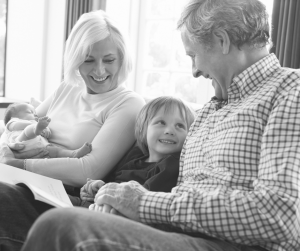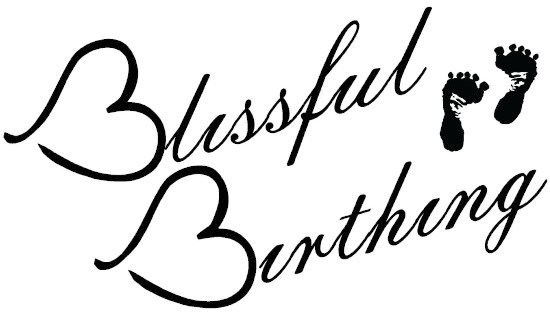Babies are SO cute and squishy! The urge to kiss your niece, nephew, or new grandchild may be overwhelming. But, as hard as it may be, please do not kiss the baby. Kissing someone else’s baby exposes them to so much more than germs (though I will address that, too). During a baby’s first year, but especially in the first three months of life, they are especially vulnerable to germs as their immune system is essentially non-existent yet. This is NOT the time to be building their immunity via casual contact. If you’ve been reading this blog for awhile, you know I’m not one for fear-mongering, so I will simply lay out the facts.
Why You Shouldn’t be Kissing the Baby
- Germs – it is no secret that, for most sicknesses, you are most contagious before you show symptoms of whatever you’ll come down with. While we are exposed to many potential immune insults throughout the day, our immune systems are mature enough to fight off most of the lesser insults. But a baby’s immune system is not strong enough to accomplish this. We do not have a crystal ball to predict what our bodies may be working to fight off and the best way to prevent potentially passing these germs to a baby is to avoid kissing them.
- A common argument for not kissing someone’s baby is the potential transmission of Herpes Simplex Virus (HSV) as it can be potentially deadly. HSV is fatal in about 10% of babies who contract it. One in ten may or may not be scary to you. And you may think that because you don’t feel a cold sore coming or don’t actively have a cold sore that it’s alright to kiss the baby. However, the virus can also be passed when you do not have active symptoms or an outbreak via your saliva. Read more here.
- HSV can also lead to viral meningitis or encephalitis (swelling of the brain).
- It is also possible for you to pass the Epstein-Barr Virus (EBV) to a baby by kissing them if you have had mono at any time in your life (it is spread through saliva). You can read about that here.
- Respiratory Syncytial Virus (RSV) is an inflammation of the respiratory system that can lead to pneumonia. Babies dehydrate much more quickly than adults, so any sickness early on can be dangerous and may require hospitalization.
- A common argument for not kissing someone’s baby is the potential transmission of Herpes Simplex Virus (HSV) as it can be potentially deadly. HSV is fatal in about 10% of babies who contract it. One in ten may or may not be scary to you. And you may think that because you don’t feel a cold sore coming or don’t actively have a cold sore that it’s alright to kiss the baby. However, the virus can also be passed when you do not have active symptoms or an outbreak via your saliva. Read more here.
- Allergies – Allergy testing is not routine, so we do not know what we (or our children) are allergic to until there is an exposure. By kissing someone’s baby you can be exposing them to a potential allergen – whether it is peanut butter, gluten, nuts, cosmetics, etc. The risk is not worth it!
- Exposure to Chemicals – whether in your cosmetics, soaps, or skin care products, a lot of what we expose ourselves to on a daily basis isn’t good for us. Many of these products contain substances that are endocrine disruptors! It is not uncommon for new parents to want to limit or reduce their baby’s exposure to such chemicals.
- If you are looking to reduce your own exposure, websites like ewg.org and apps like ThinkDirty can help you find “safer” alternatives to products that you use.
Things to Consider
If you will be visiting a new baby, make sure that you (and whoever is coming with you) is healthy. If you have been exposed to anyone who has been sick, always check with the parents first.
Change your clothes before visiting – do not wear the clothes you wore to work or shopping as you may have been exposed to sicknesses. Do not be offended if the new parents would prefer visitors do not hold their baby.
If you have recently received a vaccine, check with the parents before visiting. Some vaccines shed (meaning the recipient of the vaccine has the potential to spread the live virus to others). One such vaccine is FluMist. Let the baby’s parents know which vaccines you have received recently so they can consult with their pediatrician to determine when it is safe for you to visit.
Bonding with Baby without Kissing

It can be difficult, especially if you are a physically affectionate individual, to refrain from kissing your grandchild, niece, nephew, etc. Of course you want to bond with the baby. But how?
- Read a book to the baby
- There are a lot of amazing recordable storybooks you can buy so baby can become familiar with your voice even when you are not around.
- Sing a lullaby or recite a nursery rhyme (the same one each time you see the baby)
- Many families have special songs or lullabies that are passed from generation to generation.
- Hold the baby (if the parents are alright with visitors holding their baby)
- Feed the baby a bottle
- Take baby for a walk
- This also gives the new parents a chance to rest
- Play a special game with the baby
- Speak to the baby
- Explain how the two of you are connected
- Talk about your day
- Stop in for a visit
- Hearing your voice and smelling you will help baby to recognize you as a familiar person
Other Blogs
What Preemie Parents Want You to Know
Oh Baby! Take Your Shirt Off!
Surviving the Holidays
Additional Resources
Kissing a Baby: Is It Harmful for Your Child?
Mum’s One Rule: Cuddling is Fine, but Don’t Kiss My Baby
How Careful Do Parents Need to be When Letting People Kiss Their Newborn Infants?
Why You Should Never Kiss Babies on the Lips
RSV
Rotavirus Vaccines: Viral Shedding and Risk of Transmission
Vaccine Types

